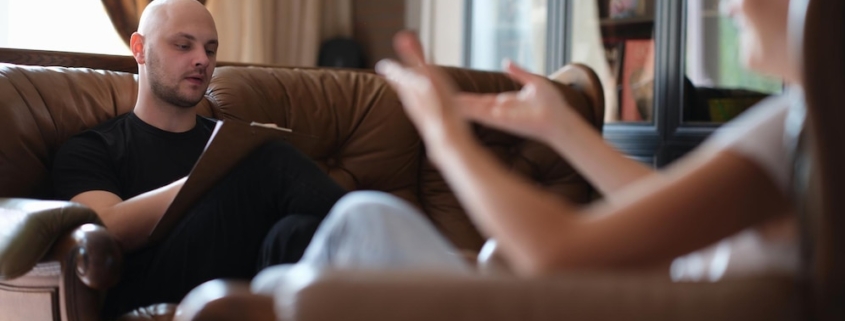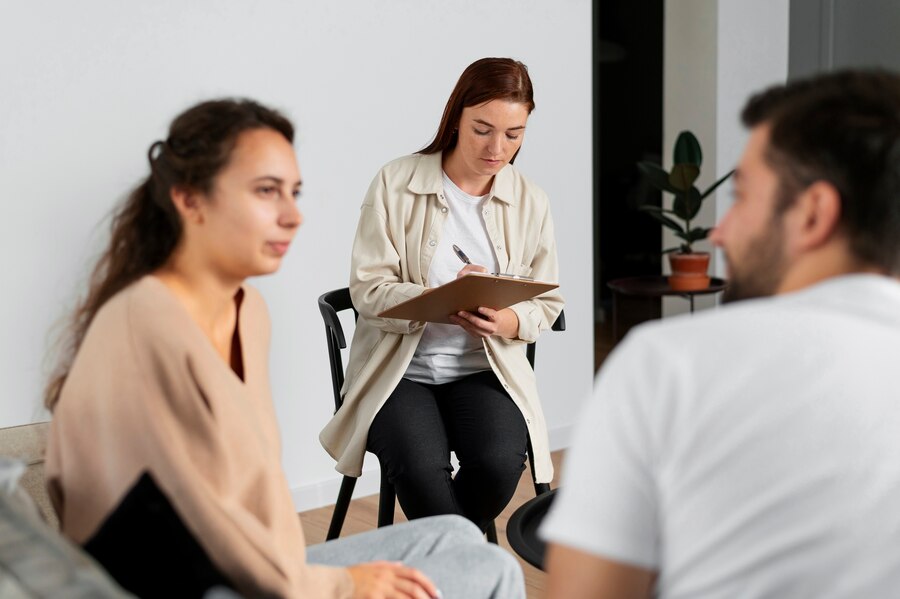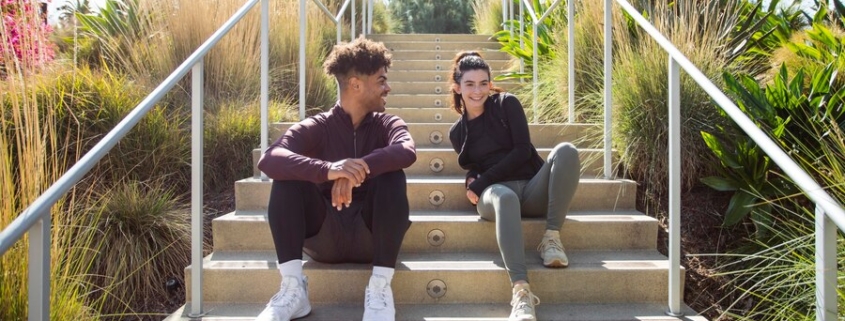Long-term recovery from addiction is a critical goal for many couples seeking to rebuild their lives and relationships. Couples Rehab in Orange County specializes in providing comprehensive support for couples navigating the recovery journey together. This guide explores essential aspects of long-term recovery and relapse prevention, focusing on how Couples Rehab integrates these elements to support couples in achieving and maintaining lasting sobriety.
Couples Rehab Services
Understanding Long-Term Recovery
Long-term recovery involves more than simply achieving initial sobriety; it encompasses a sustained commitment to overcoming addiction and improving overall well-being. For couples, long-term recovery means addressing both individual and relational challenges while fostering a supportive and healthy partnership. It requires ongoing effort, self-awareness, and adaptation to life’s evolving demands.
At Couples Rehab, long-term recovery is seen as a multifaceted journey that addresses emotional, psychological, and relational aspects of addiction. This approach ensures that couples not only work towards sobriety but also build a stronger, healthier relationship as they progress through their recovery.
Importance of a Structured Plan
A well-structured plan is crucial for successful long-term recovery. It provides a clear roadmap for individuals and couples to follow, helping them set realistic goals, track progress, and navigate potential challenges. A structured plan includes elements such as therapy schedules, relapse prevention strategies, and personal and relational goals.
Couples Rehab emphasizes the development of detailed, structured plans tailored to each couple’s unique needs. These plans help couples stay focused and organized, ensuring they have a comprehensive approach to managing their recovery. By setting clear expectations and milestones, couples are better equipped to maintain their sobriety and achieve long-term success.
Relapse Prevention Strategies
Relapse prevention is a key component of long-term recovery, focusing on minimizing the risk of returning to substance use. Effective strategies include identifying triggers, developing coping skills, and making lifestyle changes that support sobriety. Preventive measures also involve building a strong support network and establishing healthy routines.
Couples Rehab integrates various relapse prevention strategies into their programs, helping couples recognize and manage potential triggers. These strategies include creating action plans, practicing stress management techniques, and developing healthy communication skills. By addressing both individual and relational triggers, couples are better prepared to prevent relapse and sustain their recovery.
Personalized Relapse Prevention Plans
Personalized relapse prevention plans are essential for addressing the unique needs and circumstances of each couple. These plans consider individual triggers, substance use history, and relationship dynamics, ensuring that the strategies used are relevant and effective for each couple’s situation.
At Couples Rehab, personalized plans are developed through collaborative efforts between clients and therapists. This customized approach allows couples to create actionable strategies that address their specific challenges and goals. Personalized relapse prevention plans enhance the likelihood of successful long-term recovery by providing targeted support and guidance.
Couples Therapy in Recovery
Couples therapy plays a vital role in the recovery process for couples, addressing relationship issues, communication challenges, and emotional difficulties. Therapy sessions help couples build a supportive and understanding relationship, which is crucial for maintaining sobriety and fostering a healthy partnership.
Couples Rehab incorporates couples therapy into their treatment programs to help partners work through relational issues and strengthen their bond. Therapy focuses on improving communication, resolving conflicts, and supporting each other’s recovery efforts. By enhancing their relationship, couples are better equipped to navigate the challenges of recovery together.

Ongoing Therapy and Support
Ongoing therapy and support are essential for maintaining long-term recovery. Regular therapy sessions provide a space for couples to address emerging issues, reinforce recovery skills, and receive guidance. Support groups and continued counseling help couples stay engaged in their recovery journey and build resilience.
Couples Rehab offers ongoing therapy and support through individual and couples counseling, support groups, and aftercare programs. This continued support helps couples address any challenges that arise, stay motivated, and maintain their commitment to sobriety. By providing ongoing care, Couples Rehab ensures that couples have the resources they need for sustained recovery.
Handling Setbacks and Maintaining Motivation
Setbacks are a natural part of the recovery process, and learning to manage them effectively is crucial for long-term success. Maintaining motivation involves setting achievable goals, celebrating progress, and staying focused on the benefits of recovery. Developing a resilient mindset and having strategies in place to handle setbacks can help couples stay on track.
Couples Rehab supports couples in managing setbacks and maintaining motivation by providing tools for self-reflection, goal-setting, and stress management. Clients are encouraged to recognize their achievements, learn from challenges, and continue working towards their recovery goals. This approach helps couples remain committed and motivated throughout their recovery journey.
Incorporating Holistic Approaches
Holistic approaches to recovery address the whole person, including physical, emotional, and spiritual well-being. These approaches recognize that addiction affects various aspects of life and that recovery involves more than abstaining from substances. Holistic practices may include exercise, nutrition, mindfulness, and spiritual exploration.
Couples Rehab integrates holistic approaches into their treatment programs to support comprehensive recovery. Clients have access to a range of holistic therapies, such as yoga, meditation, and nutritional counseling, which enhance overall well-being and support long-term recovery. By addressing multiple facets of health, Couples Rehab promotes a balanced and sustainable approach to recovery.
Resources and Continuing Care
Resources and continuing care are vital for sustaining long-term recovery. This includes access to ongoing support services, educational materials, and community connections. Continuing care helps couples transition from treatment to everyday life and provides ongoing support to reinforce their recovery efforts.
Couples Rehab offers a range of resources and continuing care options to support clients after they complete their primary treatment program. These resources include referrals to support groups, educational materials, and access to community services. By providing continued support, Couples Rehab helps couples maintain their progress and continue their journey towards lasting recovery.
Long-term Recovery and Relapse Prevention for Couples at Couples Rehab
Long-term recovery and relapse prevention are essential aspects of overcoming addiction for couples. Couples Rehab is committed to supporting couples through a comprehensive approach that includes structured planning, personalized relapse prevention, ongoing therapy, and holistic practices. By addressing both individual and relational needs, Couples Rehab helps couples achieve and maintain lasting sobriety. Embracing these strategies ensures that couples are well-equipped to navigate the challenges of recovery and build a healthier, more fulfilling life together. Contact us today to learn more about how our programs can support your journey towards lasting recovery and a stronger relationship.
FAQs
1. What is the importance of aftercare for couples in recovery?
Answer: Aftercare provides ongoing support and resources to maintain sobriety and strengthen your relationship. It helps you develop coping mechanisms, build a strong support network, and address potential challenges together.
2. How can couples prevent relapse and maintain sobriety in the long term?
Answer: Strong communication, shared accountability, and a focus on overall well-being are key. Developing healthy coping mechanisms, attending support groups, and seeking professional guidance when needed are essential strategies.
3. What are some common challenges couples face in long-term recovery?
Answer: Couples may encounter challenges such as reintegrating into social circles, managing stress and conflict, and rebuilding trust. Open communication and seeking support can help you navigate these obstacles.
4. How can couples rebuild intimacy and trust after addiction?
Answer: Rebuilding trust takes time and effort. Couples therapy can help address underlying issues and develop healthy communication patterns. Focus on quality time, shared experiences, and physical intimacy when both partners feel ready.
5. What role does stress management play in long-term recovery for couples?
Answer: Managing stress is crucial. Incorporate relaxation techniques, exercise, and healthy coping mechanisms into your daily routine. Support each other during stressful times and seek professional help if needed.
6. How can couples balance individual needs with shared recovery goals?
Answer: Open communication and mutual respect are essential. Encourage individual growth while maintaining a strong partnership. Seek support from therapists or support groups to address any imbalances.
7. What are some signs of potential relapse in a couple’s recovery?
Answer: Be aware of changes in communication, behavior, or emotional patterns. Increased isolation, neglecting responsibilities, or returning to old habits can be warning signs.
8. How can couples create a supportive home environment for long-term recovery?
Answer: Establish healthy routines, create a relaxing space, and avoid triggers associated with substance abuse. Encourage open communication and support each other’s goals.
9. What role does spirituality play in couples’ long-term recovery?
Answer: Spirituality can provide meaning, purpose, and strength. Exploring spiritual practices together can deepen your connection and support your recovery journey.
10. How can Couples Rehabs support couples in building a fulfilling life together after recovery?
Answer: Couples Rehabs offers comprehensive aftercare programs, including individual and couples therapy, support groups, and life skills development. Our goal is to empower couples to create a happy and healthy future together.


















